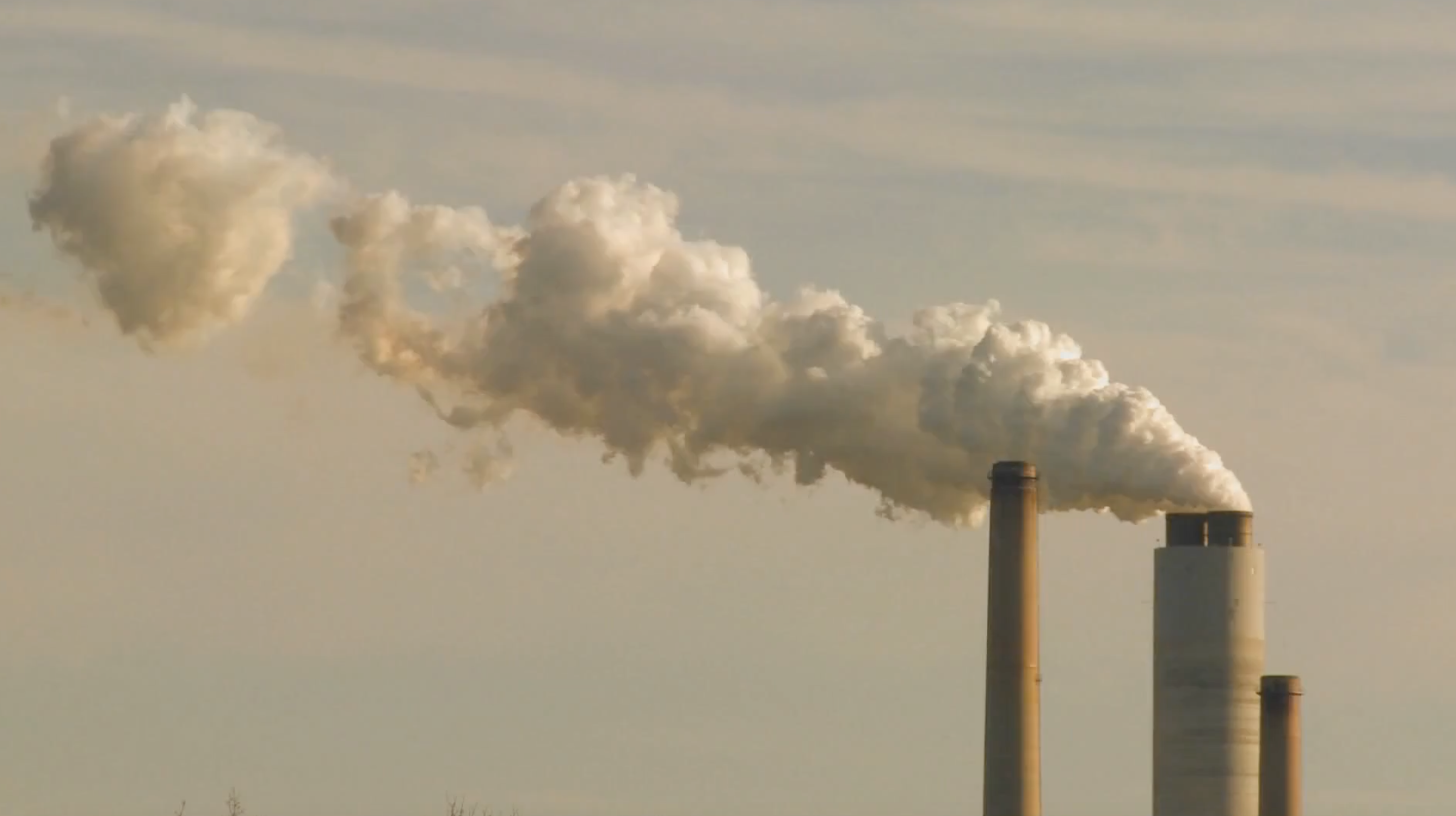Planet Detroit’s top 5 environmental stories of 2024
December 31, 2024

By Nina Misuraca Ignaczak, Planet Detroit
This article was republished with permission from Planet Detroit. Sign up for Planet Detroit’s weekly newsletter here.
This year brought a whirlwind of changes and challenges for Michigan’s environment and energy future. From smoky skies to dark money scandals, the stories we covered revealed how deeply personal and interconnected these issues are for all of us who call this state home.
We saw the release of Project 2025, a chilling blueprint from the Heritage Foundation that paints a grim picture of what another Trump term could mean for Michigan—gutting protections for clean air, water, and climate resilience. It’s hard not to wonder what this would mean for families already struggling with PFAS contamination or for Detroiters breathing some of the dirtiest air in the country.
Closer to home, we explored Michigan’s bid to lure energy-hungry data centers—a move that could either accelerate our clean energy transition or derail it, depending on how it’s managed. These developments sit against the backdrop of DTE Energy’s continued rate hikes and the anger that’s still simmering after last winter’s devastating ice storms left thousands of us in the cold and dark.
And then there were the Canadian wildfires, which brought a grim new reality into sharp focus. Many of us remember choking on the acrid air as the skies turned an unsettling shade of orange. The toll was heavy—169 deaths in Michigan alone—and the fires left a lingering question: Are we ready for what’s coming?
Meanwhile, the fight for renewable energy intensified as campaign finance violations and lawsuits exposed how some groups are working behind the scenes to shape Michigan’s energy future. These battles aren’t just about policy—they’re about who gets to decide how we power our lives and protect our planet.
As 2024 winds down, these stories remind us that the choices we make now will ripple far into the future. And they’re a reminder, too, that we all have a role to play in shaping what’s next.
What happened: Project 2025, a sweeping plan proposed by the Heritage Foundation which involved many former Trump staffers, outlined a strategy to dismantle federal climate and environmental protections for another Trump term. Planet Detroit explored the potential implications for Michigan, including weakened pollution controls and the rollback of federal funding for clean water and air initiatives. As Trump positions himself for a return to the White House, environmental advocates in Michigan raise concerns about how these changes could affect ongoing efforts to address PFAS contamination, air quality and climate resilience. (Trump’s return raises environmental concerns)
What’s next: If implemented, Project 2025 could hinder Michigan’s ability to enforce environmental regulations and secure federal resources for infrastructure and cleanup projects. State and local governments and advocacy groups may need to step up efforts to fill the gap left by reduced federal support.
Michigan’s data center boom-to-come?
What happened: Recently, the Michigan Senate approved tax incentives to attract data centers to the state, reflecting utility and corporate interests in expanding the sector. Gov. Whitmer is expected to sign the bill. Planet Detroit reported on lessons from Virginia’s data center boom, where facilities have been criticized for their massive energy consumption, reliance on fossil fuels and dirty backup generators, and encroachment into rural and suburban areas.
What’s next: As Michigan positions itself as a hub for data center development, concerns are growing that the industry’s high energy demand could undermine the state’s climate plan. With utilities potentially increasing fossil fuel reliance to meet data center power needs, this expansion risks triggering an “off-ramp” provision in Michigan’s plan, slowing the transition to renewable energy. Other concerns include possible rate hikes for utility customers and significant water usage for cooling equipment.
DTE rate hikes, outages, dark money and little accountability following ice storms
What happened: After massive power outages during ice storms in 2023, DTE Energy faced widespread criticism for its slow response and lack of preparedness. Residents and lawmakers called for greater accountability, but no significant regulatory changes have been made. Nine months later, reports reveal that a DTE-linked group contributed $100,000 to a dark money account tied to Michigan House Speaker Joe Tate, raising questions about the influence of utilities on state politics amid public anger over outages.
DTE also has a pending $456 million electricity rate case and was caught ghostwriting comments from businesses in support. The Michigan Public Service Commission, which will decide on the rate hike, called this “disappointing”, while the Michigan Attorney General’s office said “the matter has caught our attention as we continue our work to combat incessant and excessive rate hike requests for the State’s utility corporations.”
The time between DTE rate hike requests has fallen from about every two years a decade ago to under 17 months. The Public Service Commission must act on DTE’s rate hike within 10 months of its initial filing, which could allow new rates to go into effect as early as late January 2025. Attorney General Dana Nessel has intervened in the case, saying the hike should be kept to 2.5%
What’s next: With public frustration mounting, advocacy groups may renew efforts for energy reform, including a possible ballot question effort that would bar utilities from making political donations, which are widely seen as a means to block accountability for frequent outages. The revelations about dark money contributions could add momentum to demands for policy changes and increased accountability from both utilities and lawmakers.
The toll of the 2023 Canadian wildfires
What happened: Smoke from the 2023 Canadian wildfires blanketed Michigan for weeks, leading to severe air quality issues. Planet Detroit reported that wildfire smoke contributed to 169 deaths in Michigan due to respiratory and cardiovascular complications. During the height of the wildfires, Metro Detroit experienced some of the worst air quality in the world, highlighting the region’s vulnerability to climate-driven disasters. In 2024, wildfire smoke from Canada was less severe than in 2023, but the issue persists as a growing threat.
What’s next: While 2024 brought some relief, the unpredictability of future wildfire seasons under climate change underscores the need for action. Michigan officials and environmental advocates may push for stronger air quality monitoring, emergency response plans and long-term climate resilience strategies. The ongoing challenges highlight the importance of preparing for a future where such events could become more frequent and severe.
Campaign finance violations and ongoing legal battles in Michigan’s renewable energy debate
What happened: Planet Detroit uncovered a campaign finance violation involving a dark money nonprofit, Our Home Our Voice, tied to the Michigan Farm Bureau and its donations to a ballot initiative opposing the state’s renewable energy siting law. The initiative, which sought to repeal zoning laws that encourage solar and wind energy development, raised concerns over the influence of undisclosed donors in shaping energy policy. Further investigation revealed Our Home Our Voiceviolated Michigan’s campaign finance laws by failing to properly disclose contributions from out-of-state donors and political action committees.
Now, the controversy has escalated, with local governments filing a lawsuit challenging the renewable energy siting law. The suit argues that the law infringes on local control and seeks to overturn the statewide siting rules that prioritize solar and wind energy projects.
What’s next: The lawsuit, combined with campaign finance violations, has intensified the debate over renewable energy policy in Michigan. Proponents of the law argue that it is essential for achieving Michigan’s climate and energy goals, while opponents push for greater local control. Under a Trump administration, the stakes could become even higher. A rollback of federal climate and renewable energy policies, paired with weakened enforcement of environmental regulations, could embolden efforts to overturn Michigan’s siting law and discourage investment in clean energy projects.
Catch more news at Great Lakes Now:
Who is working to preserve and restore wetlands in Metro Detroit?
In Detroit’s Poletown East neighborhood, residents find healing among the trees
Featured image: Powerplant with smokestacks. (Photo Credit: GLN)
Search
RECENT PRESS RELEASES
Related Post



